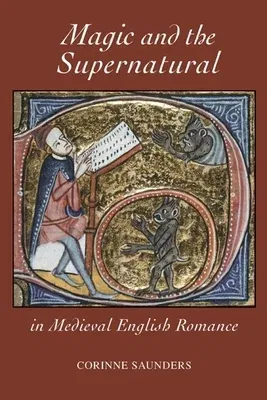The world of medieval romance is one in which magic and the supernatural
are constantly present: in otherwordly encounters, in the strange
adventures experienced by questing knights, in the experience of the
uncanny, and in marvellous objects - rings, potions, amulets, and the
celebrated green girdle in 'Sir Gawain and the Green Knight'. This study
looks at a wide range of medieval English romance texts, including the
works of Chaucer and Malory, from a broad cultural perspective, to show
that while they employ magic in order to create exotic, escapist worlds,
they are also grounded in a sense of possibility, and reflect a complex
web of inherited and current ideas. The book opens with a survey of
classical and biblical precedents, and of medieval attitudes to magic;
subsequent chapters explore the ways that romances both reflect
contemporary attitudes and ideas, and imaginatively transform them. In
particular, the author explores the distinction between the `white
magic' of healing and protection, and the more dangerous arts of
`nigromancy', black magic. Also addressed is the wider supernatural,
including the ways that ideas associated with human magic can be
intensified and developed in depictions of otherworldly practitioners of
magic. The ambiguous figures of the enchantress and the shapeshifter are
a special focus, and the faery is contrasted with the Christian
supernatural - miracles, ghosts, spirits, demons and incubi. Professor
CORINNE SAUNDERS Saunders teaches in the Department of English,
University of Durham.

